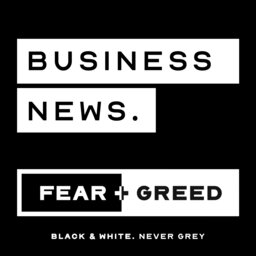Interview: The staggering value of nailing good customer service
Every business knows the importance of a good customer experience. But those who really nail it can see double the revenue returns, according to KPMG's Customer Experience Excellence report.
Carmen Bekker, Partner-in-Charge of KPMG Customer Advisory, joins Sean Aylmer in the studio to talk about the customer experience, and how Mecca and Bunnings (along with other Australian companies) have figured out the secret to customer satisfaction.
 FEAR & GREED | Business News
FEAR & GREED | Business News


